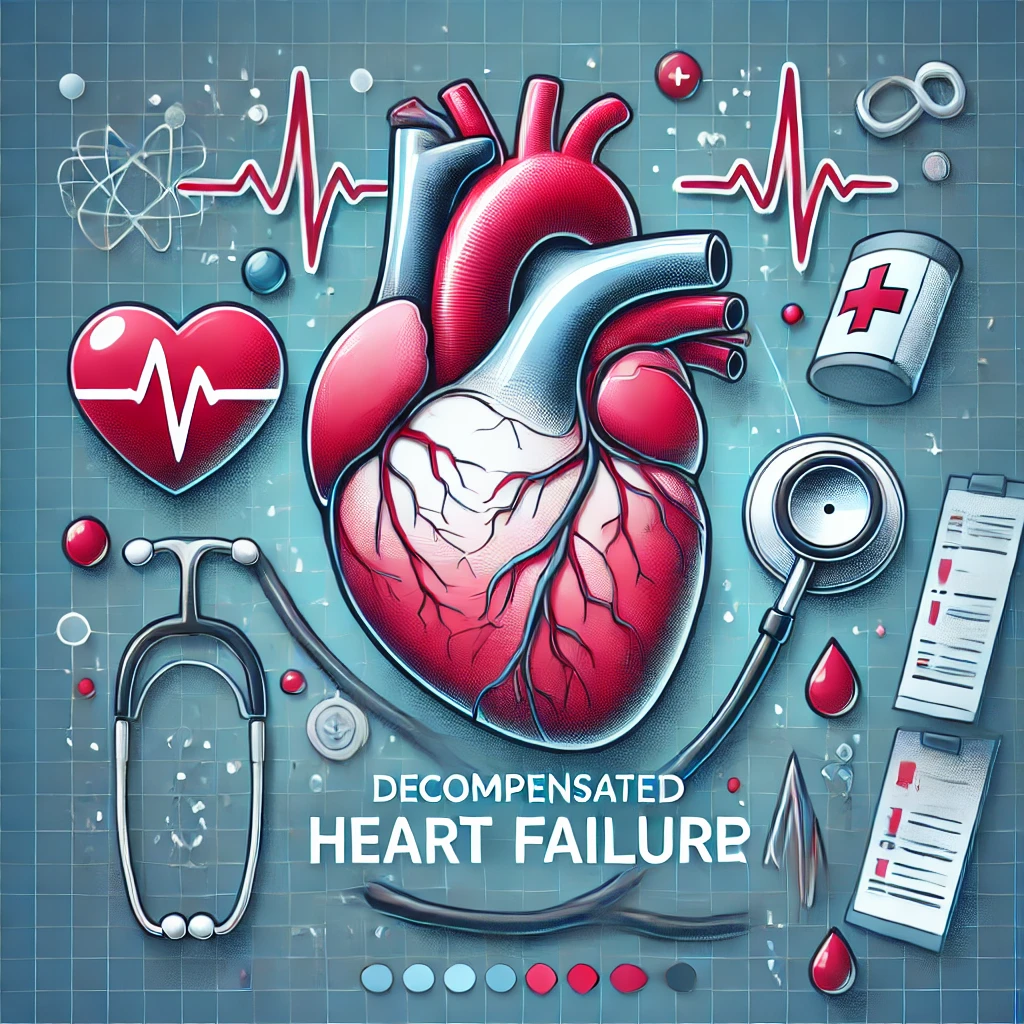Decompensated heart failure occurs when the heart’s ability to pump blood becomes severely impaired, leading to a sudden or gradual worsening of symptoms. Recognizing the signs and understanding the treatment options can be crucial for managing this life-threatening condition.
What Is Decompensated Heart Failure?
Decompensated heart failure is an advanced stage of heart failure where the heart can no longer maintain adequate blood flow to meet the body’s needs. It often results in fluid buildup in the lungs and other parts of the body, causing severe symptoms.
Symptoms of Decompensated Heart Failure
- Severe shortness of breath, especially when lying flat
- Sudden weight gain due to fluid retention
- Swelling in the legs, ankles, or abdomen
- Fatigue and weakness
- Coughing or wheezing
Causes and Risk Factors
- Uncontrolled high blood pressure
- Coronary artery disease or heart attacks
- Irregular heart rhythms (arrhythmias)
- Poor adherence to medications or diet
- Infections or illnesses
Diagnosis
Doctors diagnose decompensated heart failure through a combination of:
- Physical Examination: Identifying fluid retention and breathing difficulties.
- Imaging Tests: Echocardiograms and chest X-rays to assess heart function.
- Blood Tests: Checking for biomarkers like BNP (B-type natriuretic peptide).
Treatment Options
1. Hospitalization
- Immediate treatment with oxygen, diuretics, and medications to stabilize heart function.
2. Medications
- Diuretics to remove excess fluid
- ACE inhibitors or beta-blockers to improve heart function
- Vasodilators to enhance blood flow
3. Advanced Therapies
- Implantable devices like pacemakers or defibrillators
- In severe cases, heart transplantation
Conclusion
Decompensated heart failure requires urgent medical attention and long-term management to improve outcomes. Awareness of symptoms and proactive care can make a significant difference.
